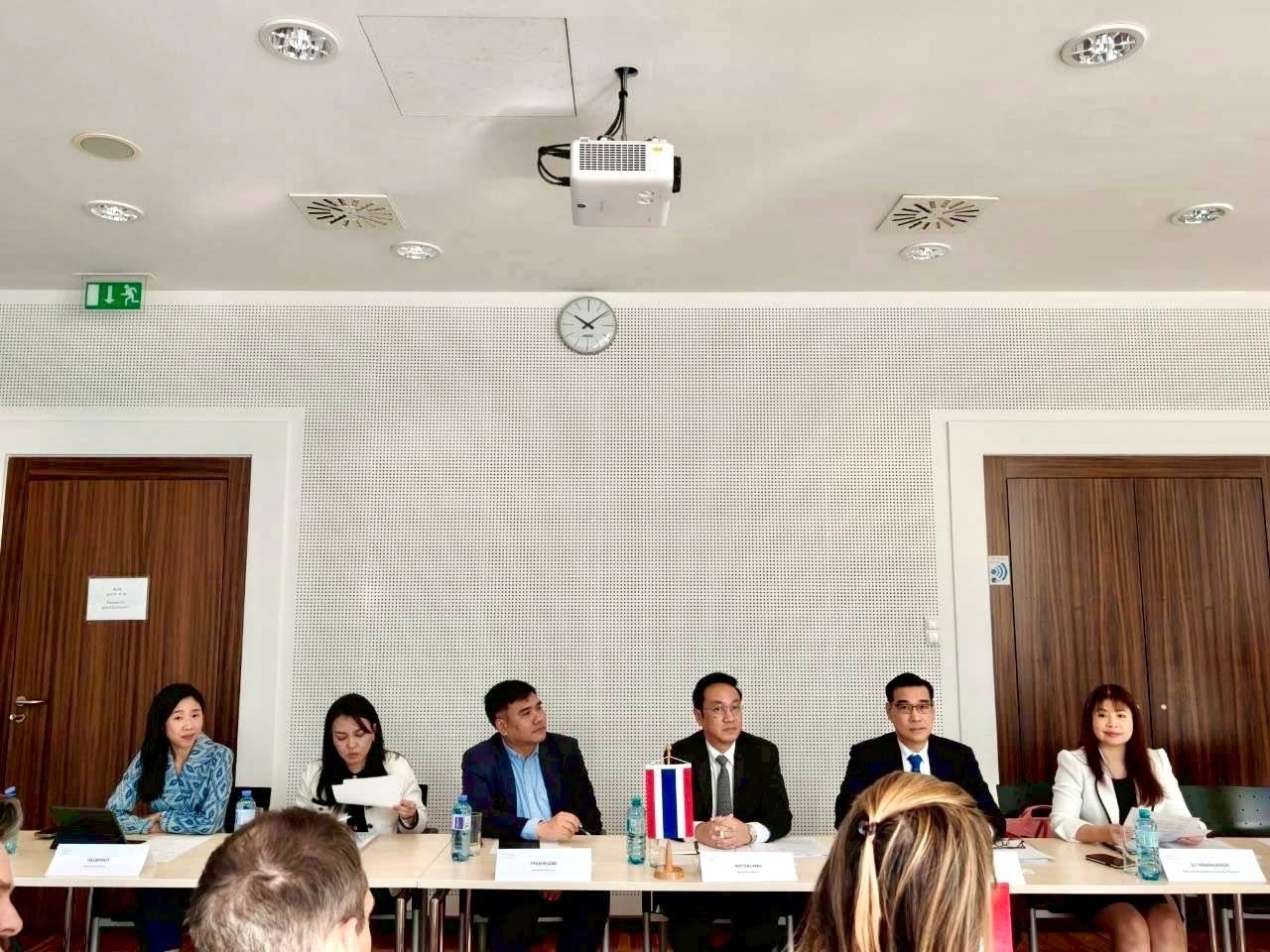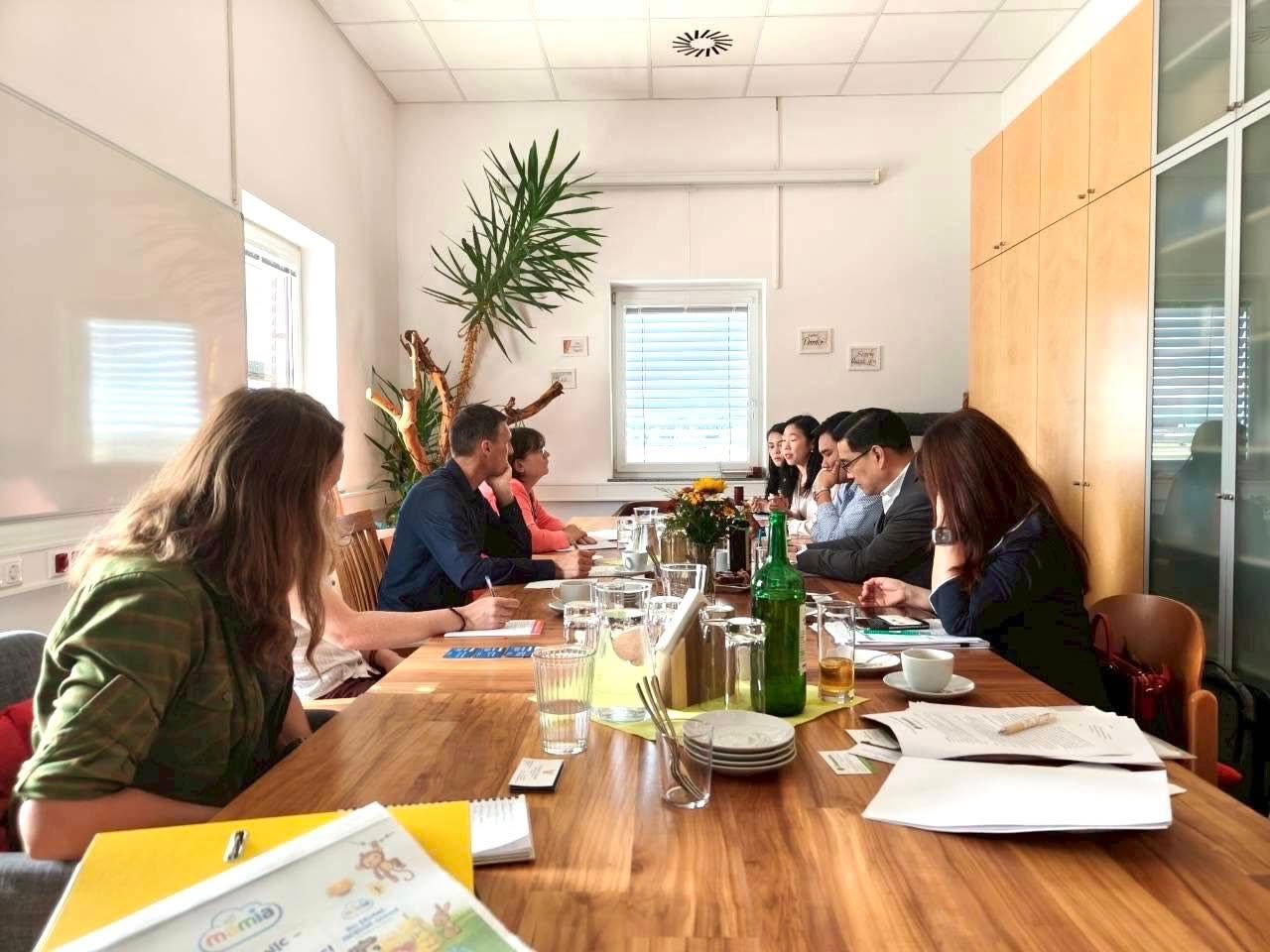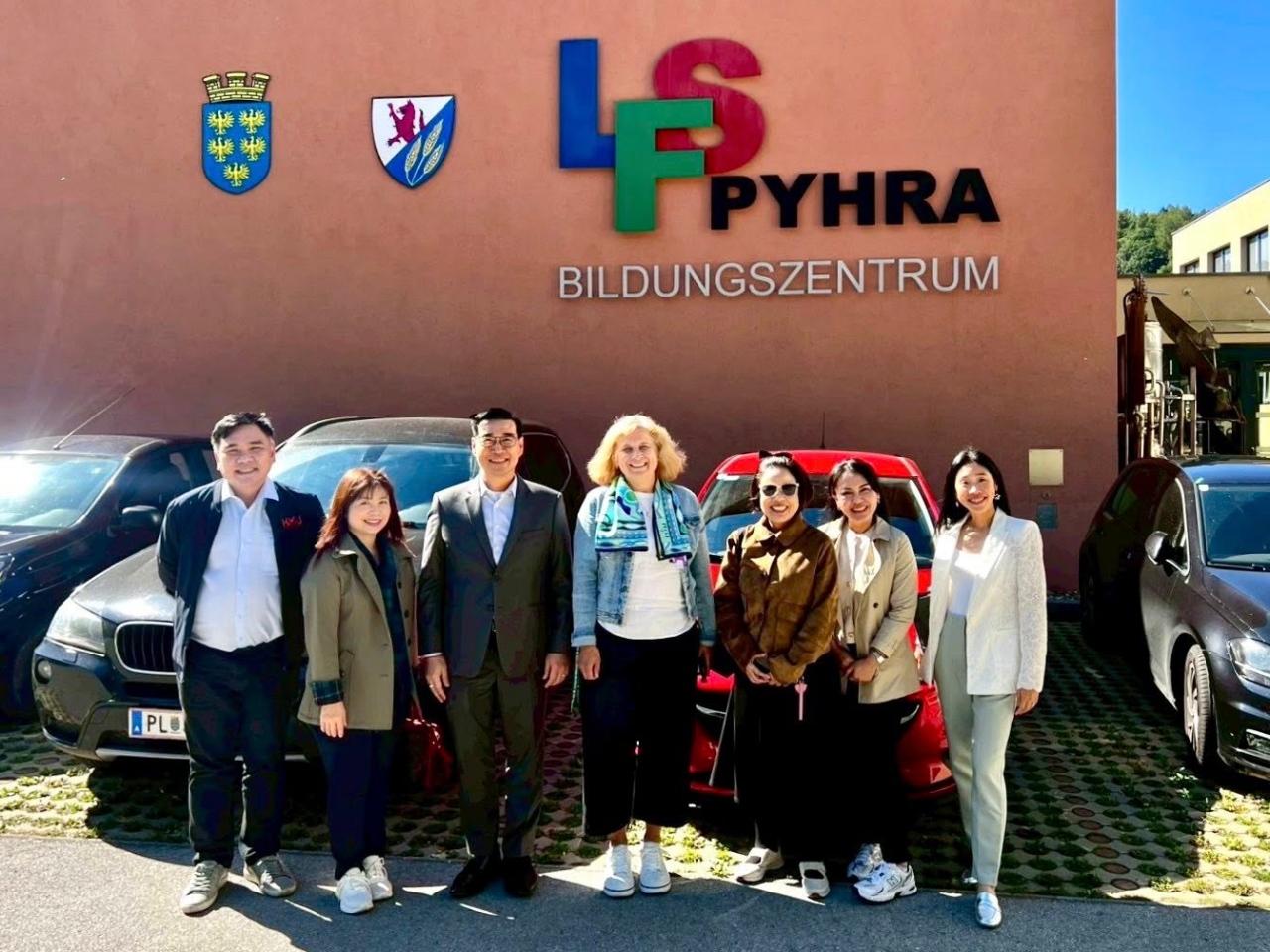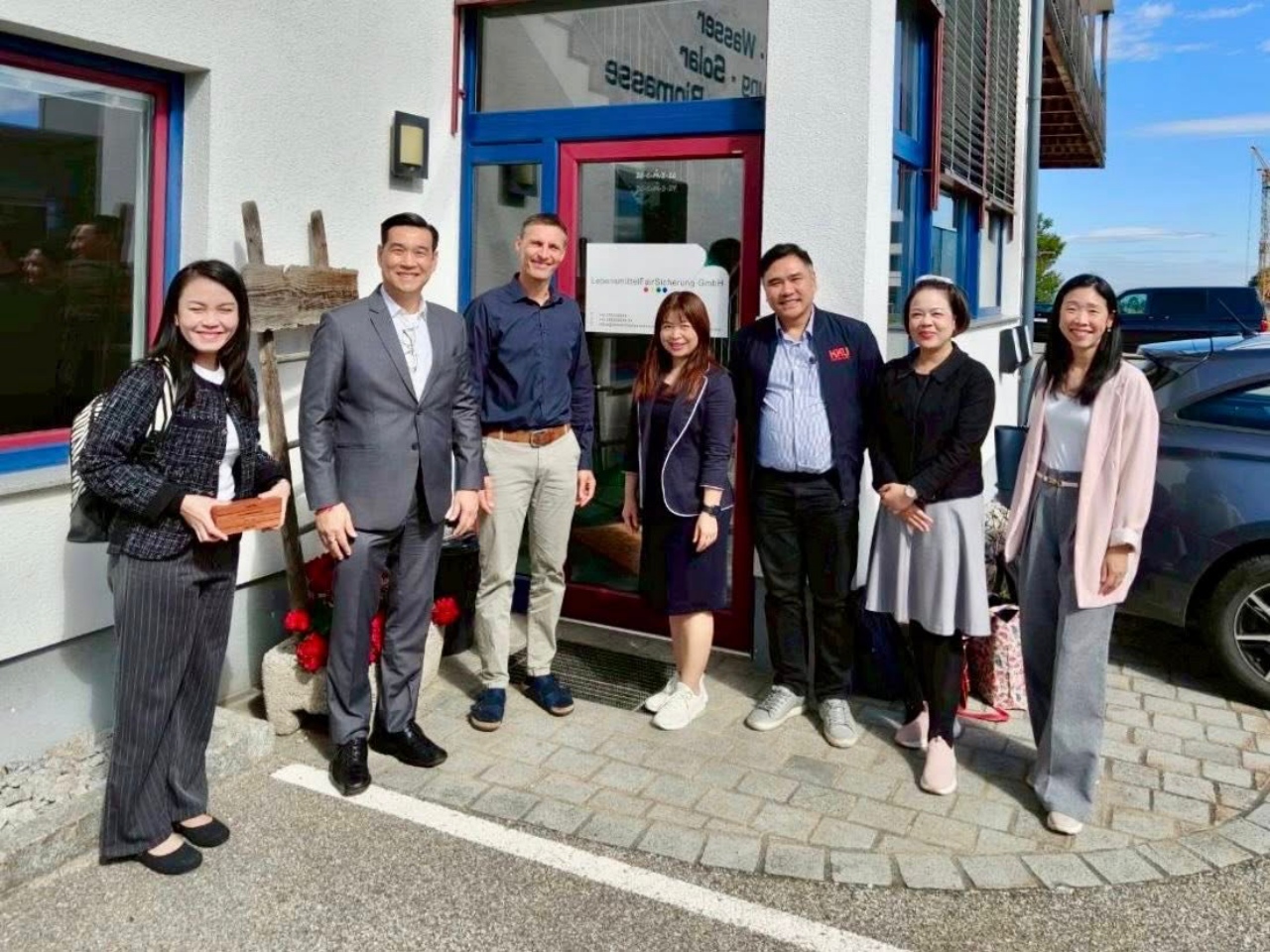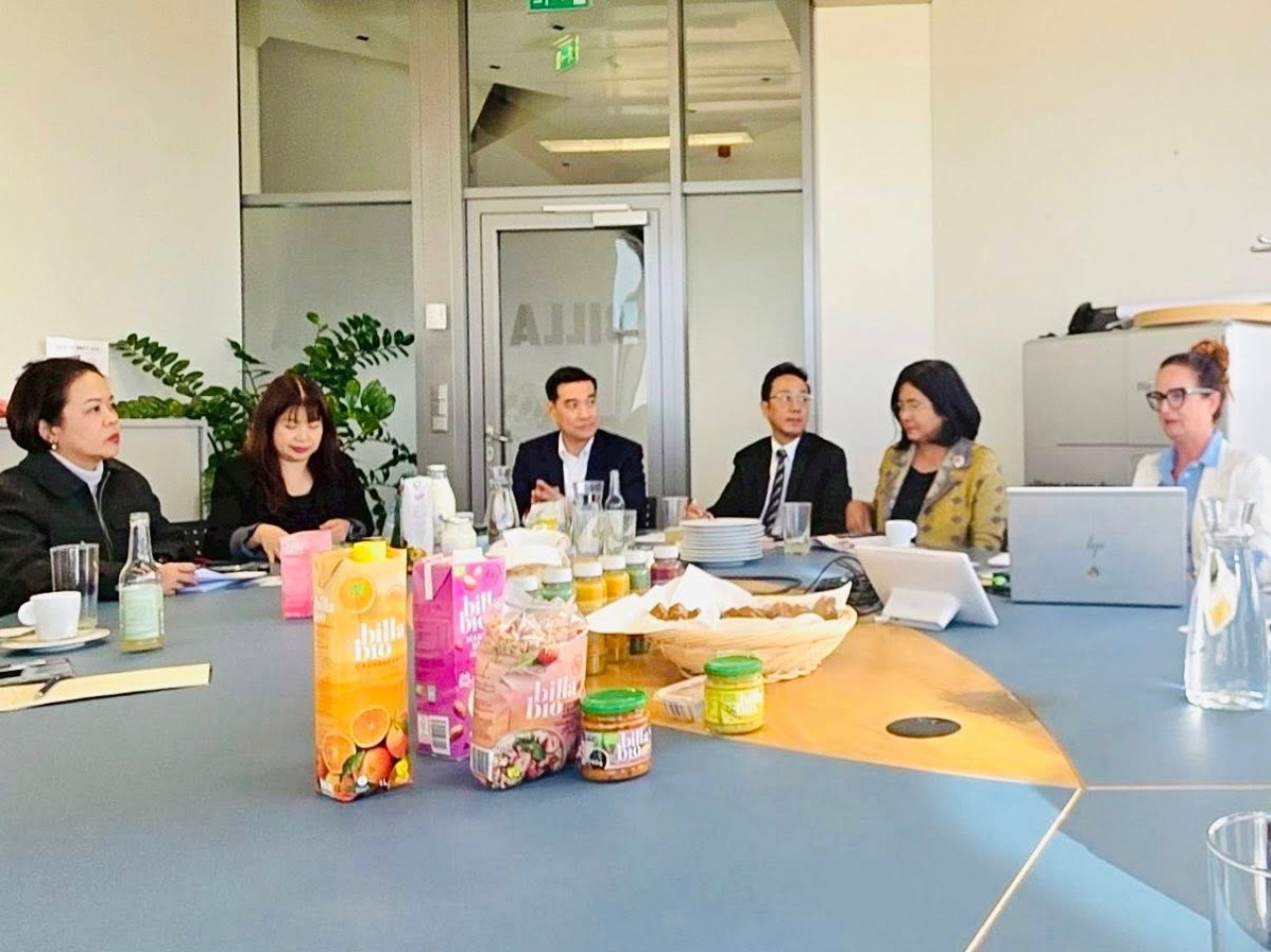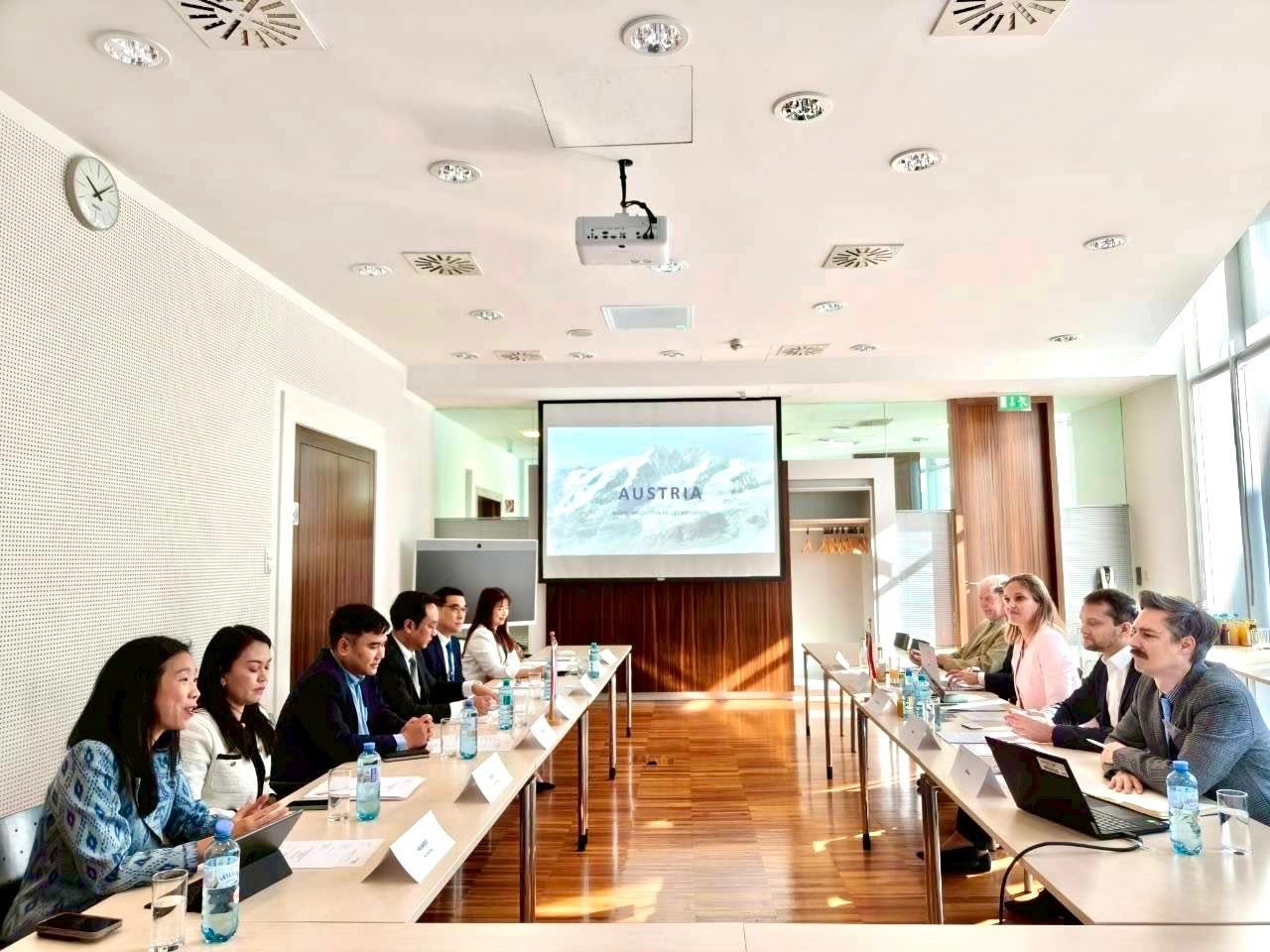Royal Thai Embassy in Vienna Supports Thai SME Development Learning from Austria’s Best Practices
Recognizing the vital role of small and medium-sized enterprises (SMEs) play in driving Thailand’s economy and inspired by Austria’s strong SME sector, the Royal Thai Embassy in Vienna has launched a project to strengthen Thai SMEs by learning from Austrian best practices.
As part of this initiative, the Embassy organized a study visit to Austria for Thai representatives. The delegation, led by Mr. Witawat Lamsam, Director of the International Cooperation Division at the Office of Small and Medium Enterprises Promotion (OSMEP), including representatives from Khon Kaen University, which develops SME training programs. The visit aimed to exchange ideas with Austrian agencies and explore ways to adapt Austrian knowledge and experience to enhance Thai SMEs, with an initial focus on food processing and agricultural technology, particularly organic products.
During the program, the Thai delegation engaged with Austria’s Federal Ministry for Labour and Economy to learn about government policies and mechanisms that support SMEs, especially modular structure and funding schemes designed to foster green and digital transitions.
The delegation also met with Agro Bio and LebensmittelFairPackung to discuss collaboration between organic producers and retail outlets. These organizations play key roles in ensuring product quality for supermarkets such as Hofer and in developing EU-compliant packaging that meets consumer expectations.
On product research and development, the delegation visited the BOKU Core Facility Food & Bio Processing (CF FBP), which provides R&D services for the food industry. The facility is systematically managed and offers opportunities for SMEs to benefit from its equipment and expertise in developing various products.
In addition, the group studied the success of Ja! Natürlich, Austria’s leading organic brand under REWE. With over 1,200 products and a history of more than 30 years, the brand exemplifies strong farmer partnerships and a commitment to sustainable and high-quality production.
This project represents an important step in learning from Austria’s holistic approach to building an ecosystem of organic stakeholders from farmers and entrepreneurs to distributors. It underscores the value of raising product standards, strengthening quality control, and combining government oversight with private sector initiatives such as market analysis, consultancy, and market entry support. These lessons can be adapted to advance Thailand’s organic product sector and enhance the global competitiveness of Thai SMEs.
